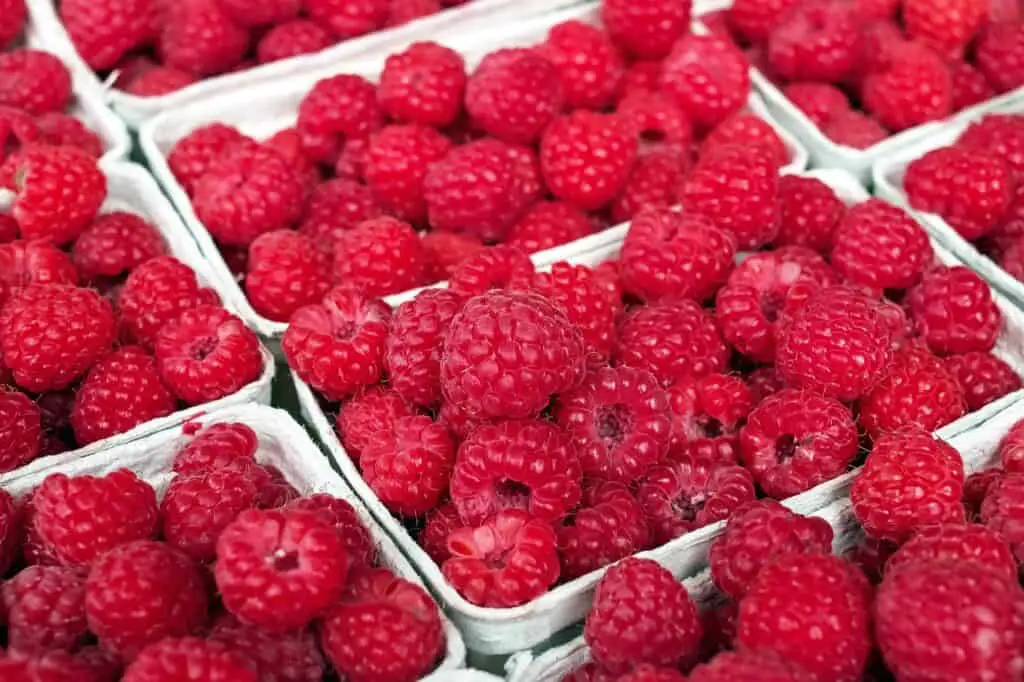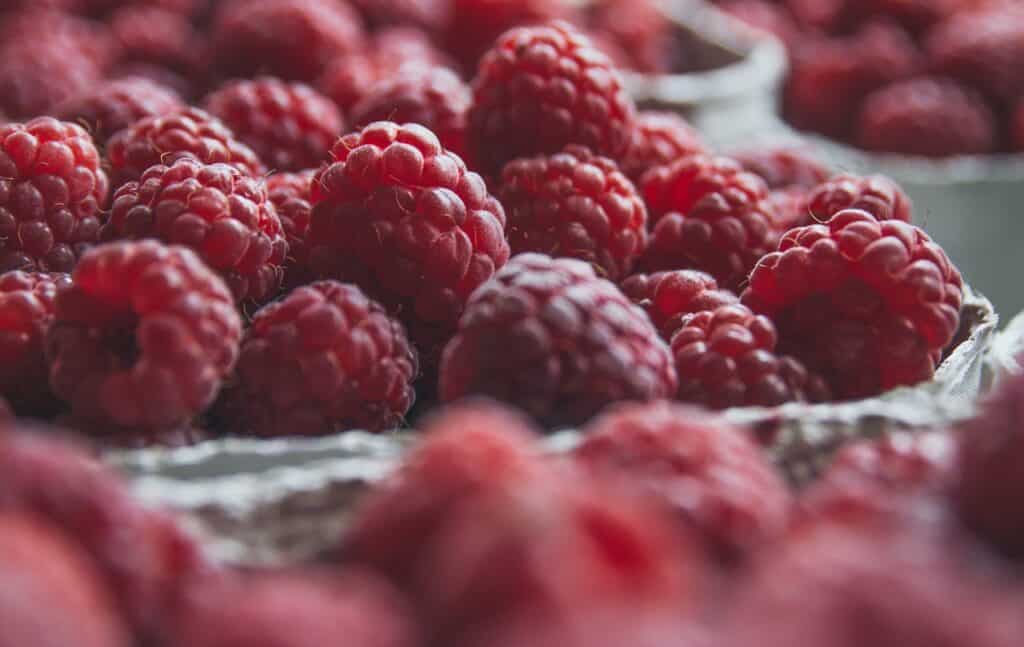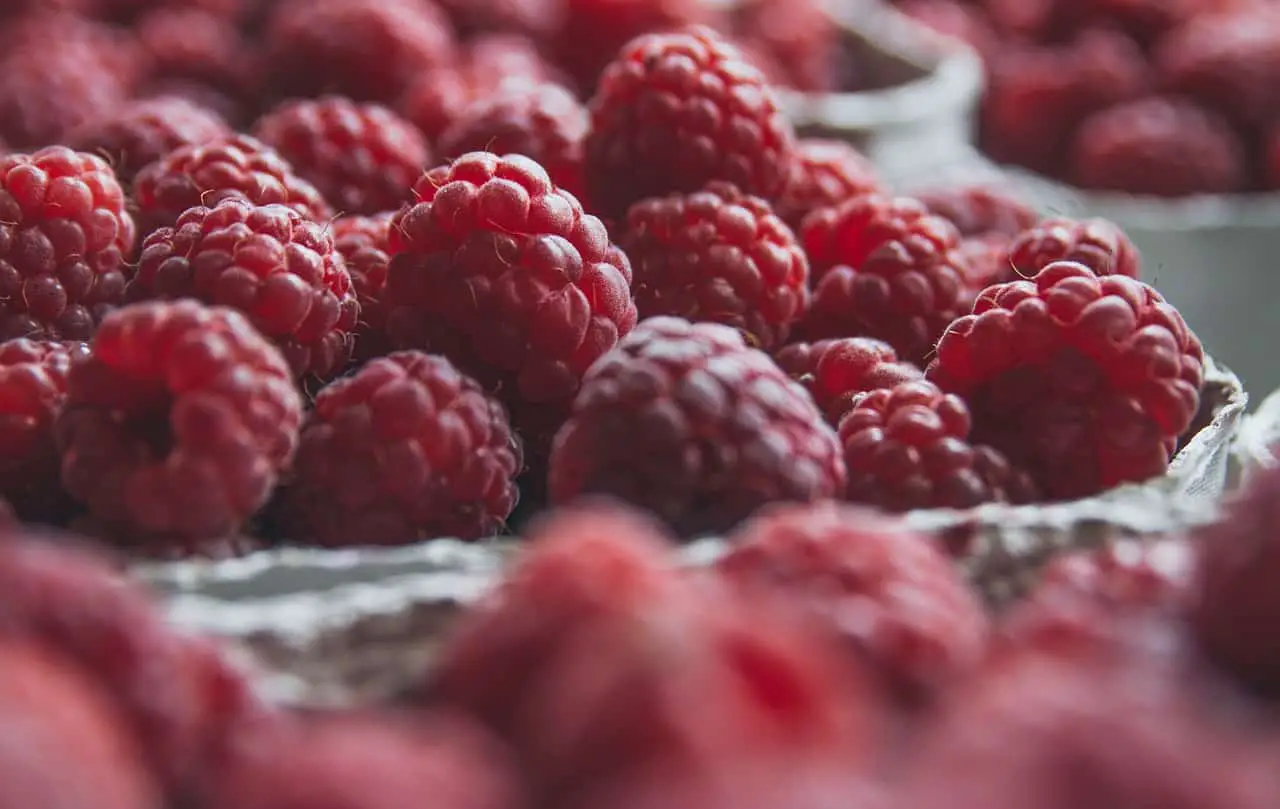Raspberries are a delightful and nutritious summer treat. Their vibrant color and sweet-tart flavor make them a favorite among many. However, you may have come across raspberries with a surprise inhabitant – tiny worms. This phenomenon can be unsettling, leaving you wondering whether raspberries with worms are safe to eat. In this article, we’ll explore this common concern, provide guidance on how to deal with raspberry worms, and address related questions about white worms and mysterious white specks in your raspberries.

How to Get Rid of Raspberry Worms
Finding a worm wriggling in your raspberries can be quite off-putting. While raspberry worms are generally harmless to humans, most people prefer not to share their berries with these uninvited guests. Here are a few tips on how to get rid of raspberry worms:
- Inspect Thoroughly: Before consuming or using raspberries for any culinary purpose, give them a thorough inspection. Look for small, white worms crawling on the surface or within the berry. Discard any raspberries with visible worms.
- Wash the Raspberries: Rinsing your raspberries in cold water can help remove any residual worms, dirt, or other contaminants. Gently agitate the berries to ensure that you get rid of any unwanted hitchhikers.
- Soak in Saltwater: Some people prefer to soak their raspberries in saltwater (a mixture of salt and water) for a few minutes. The saltwater solution is believed to encourage the worms to emerge from the berries. However, it’s essential to rinse the raspberries thoroughly after this process to remove excess salt.
- Freeze the Raspberries: Freezing your raspberries can also be an effective method for dealing with worms. Place the berries in the freezer for a few hours, and the worms should die and become easier to remove.
- Preventive Measures: To reduce the chances of encountering raspberry worms, consider taking preventive measures in your garden or during harvesting. Regularly inspect your raspberry plants for signs of infestation and apply appropriate pest control methods as needed.
White Worms in Raspberries
White worms found in raspberries are typically the larvae of the Spotted Wing Drosophila (SWD), a small fruit fly that can lay its eggs in ripening fruit. These larvae can be up to 1/8 inch long and are often nearly translucent. While the sight of white worms in your raspberries can be unappetizing, the good news is that they are not harmful when ingested. SWD larvae are not parasitic to humans, and eating a few accidentally won’t pose a health risk.
If you encounter white worms in your raspberries, it’s best to follow the same steps mentioned above for dealing with raspberry worms: inspect, wash, and freeze the berries if necessary. Keep in mind that proper storage and handling can help reduce the chances of SWD infestations.

What Happens if You Eat a Raspberry Worm
Eating a raspberry worm, whether it’s the more common pinkish-red raspberry worm or the white Spotted Wing Drosophila larva, is generally not harmful. The worms are not parasites of humans, and they won’t cause any harm or disease if ingested accidentally. However, the idea of consuming worms can be off-putting, so it’s advisable to follow the suggestions mentioned earlier to minimize the chances of encountering them in your raspberries.
White Things in Raspberries
In addition to white worms, you may come across small, white specks in your raspberries. These white specks are usually harmless and can be attributed to various factors:
- Crystallized Sugars: Sometimes, the white specks can be crystallized sugars, particularly in overripe raspberries. These sugars can seep out of the fruit and form tiny white crystals on the surface.
- Mineral Deposits: In some cases, the white specks may be mineral deposits from the plant or the environment. These deposits are generally safe to consume.
- Fruit Bloom: Raspberries, like many other fruits, have a natural waxy coating known as “bloom” that can give them a whitish appearance. This bloom can sometimes appear as white specks on the fruit.
- Mold or Fungus: In rare instances, white specks could indicate the presence of mold or fungus. In such cases, it’s best to discard the affected berries.
Can you get sick from eating raspberries with worms?
No, you are unlikely to get sick from eating raspberries with worms. Raspberry worms are not harmful to human health. However, the presence of worms may be unappetizing, so it’s best to remove them before consuming the berries.
How can I prevent raspberry worms in my garden?
To prevent raspberry worms in your garden, practice good garden hygiene, and regularly inspect your raspberry plants for signs of infestation. Consider using organic or chemical pest control methods when necessary.
Can raspberry worms affect the quality of the fruit?
Raspberry worms can affect the quality of the fruit by causing physical damage and making the berries unappealing. Regular inspection and proper handling of raspberries can help maintain their quality.
What are some natural ways to deter raspberry worms in the garden?
Natural ways to deter raspberry worms include using neem oil, introducing beneficial insects like parasitic wasps, and practicing crop rotation to disrupt the life cycle of the worms.

In conclusion, encountering worms in your raspberries can be an unwelcome surprise, but it’s generally not a cause for concern regarding your health. Raspberry worms, whether pinkish-red or white, are not harmful when ingested. By following the provided tips on how to deal with raspberry worms and practicing good raspberry garden management, you can continue to enjoy the deliciousness and health benefits of raspberries without any worries.

